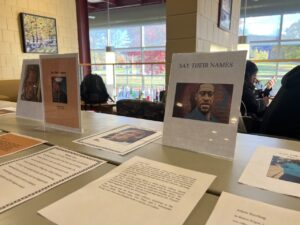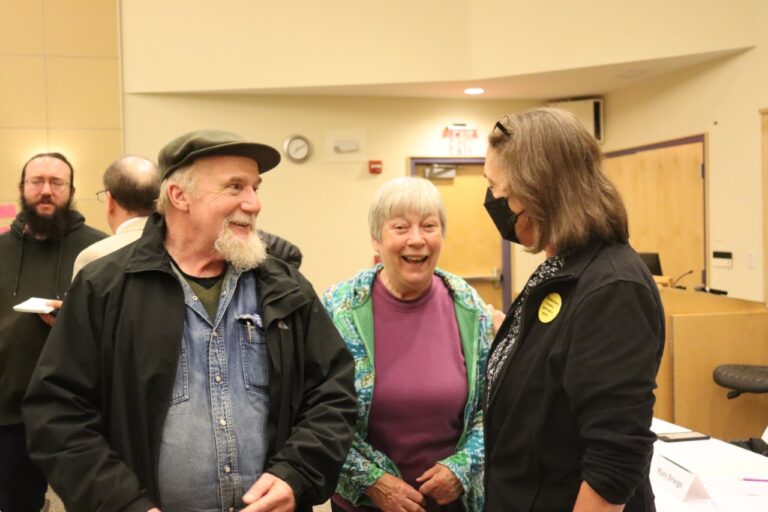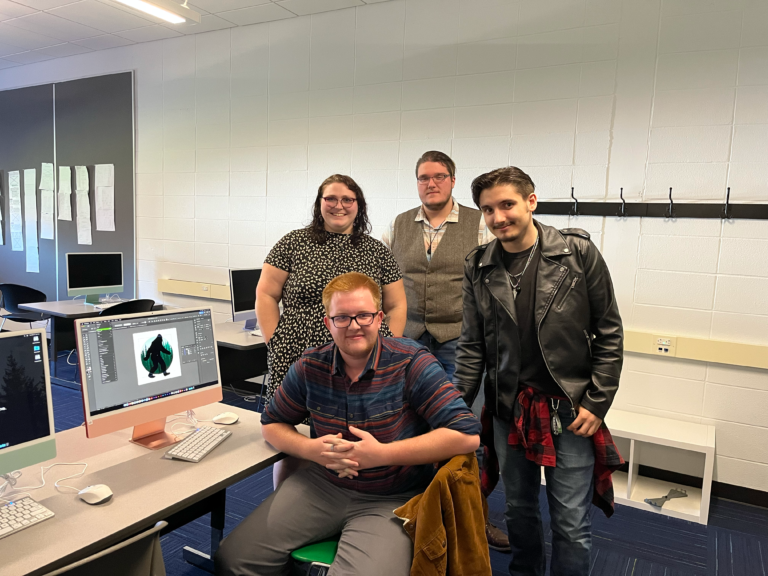Say their names
On Oct. 19, the Castleton branch of the NAACP held a Blackout day, encouraging everyone on campus to wear black in remembrance of the countless Black victims of police brutality. That afternoon, they held a moment of silence in the Campus Center, along with short speeches from NAACP officers and tables with information about some of the victims who lost their lives. While all of this was happening, online backlash against the event was growing.
“It’s important to have (events like) this for white students to recognize what’s happening outside of their state, because we don’t see this too much in Vermont. It’s important for people to understand what’s happening, and it’s also important for students of color on campus to know who their allies are, and I think this was a good representation of that,” said NAACP Vice President Lili Farrell.
Along with Farrell, NAACP President Kayon Morgan said she felt there was a good turnout for the event, and appreciated that so many students, faculty and staff showed up. Though a large turnout was not the group’s only goal.

“I tried to focus less on whether it was going to be this huge thing, or we were going to have this huge show of support, and more about ensuring that we’re being true to ourselves, true to what NAACP is about, and presenting the best way we know,” Morgan said. “I’d like to reiterate over and over again that it’s not about division, it’s not about bashing police officers, it’s not about trying to oppose a political agenda, it’s about the victims.”
Ogyen Anak, a member of the NAACP who attended the event, said that “just showing support and being part of a community, or adding another person to the community,” is important. To Anak, events like this are an opportunity to “spread awareness and show support to people who are struggling or help bring more awareness to racial disparities in this community and school.”
Junior Mia Manheimer attended the event because she is close friends with Morgan and wanted to support her, but also because she wanted to help “spread awareness.”
“I can kind of get busy, caught up, doing my own personal studies because I’m a nursing student. And I felt like wearing black was the least I could do to show my support,” Manheimer said. “We live in such a small bubble. I think it’s super important to just be aware of what’s going on.”
The limits of that small bubble were revealed on YikYak, a popular app on college campuses where anyone in a certain mile radius can make posts anonymously. On the day of the Blackout, YikYak was flooded with posts denying that white privilege exists, questioning the relevance of the Blackout day and making fun of the event itself, as well as the people on the app who were defending it.
“Black lives obviously matter but having a whole day honoring one group seems like reverse supremacy,” one user posted.
Another user posted a video of an intoxicated white man stumbling around with the caption, “This man just ended racism #blackout.”
To Manheimer, these posts were “really disappointing.”
“They really aren’t taking this seriously because this isn’t affecting them. So, they just like to joke about it. But it just shows how much privilege there is on this campus and how people are not making an effort to make the situation more ubiquitous,” Manheimer said.
“It was definitely not something that we wanted to see. It was uncomfortable, and a lot of us felt uneasy,” Morgan said.
Despite that, Morgan recognizes that everything happening on YikYak is still creating a dialogue among students about these issues.
“Even though the comments were very awful, people were talking about it. And I also saw some response – there’s people out there educating, and there are some good conversations happening. And that’s what we want, to facilitate conversation,” Morgan said. “CU Blackout proved that these things still exist, and it proved why this conversation is important.”
To Farrell, these comments were “frustrating and upsetting,” but can also help her and other students get a sense of the campus climate.
“It lets us know, what do people not know? What do they care about? What do they not care about? Have they been educated on these things? Do they care to be educated on these things? And what position does that put our students of color on campus in? What are the things that we need to be pushing for on campus education-wise and safety and protection-wise for students of color, and other marginalized groups, too?” Farrell said.
But Morgan still wants to recognize how comments like these are limiting to the people being targeted.
“People of color, people that are in marginalized groups, the reason why they’re so fearful to come out and put themselves out there all the time is because of the reaction like what you got yesterday on YikYak,” Morgan said.








